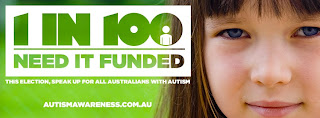
With the rise in understanding of Asperger’s Syndrome and the condition being spoken of more at a community level – and of course, all the bombarding of information we receive and the resulting feelings of guilt we endure – when your child throws a few tantrums, especially in public, it’s easy to be concerned your child may have the disorder.
Temper tantrums are common in toddlers and pre-schoolers and are very different from the “meltdowns” experienced by children on the Autism Spectrum.
A tantrum is, essentially, a power play when a child doesn’t get what he wants and makes his frustration or anger clear by having a “tantrum”. He kicks, screams and flails his arms.
A meltdown, on the other hand, is often caused by something in the environment that has upset the child or caused him confusion or distress. It may not be obvious to you or others, and is not always a result of frustration or anger. The main difference between a tantrum and a meltdown is control.
Children having a tantrum are in complete control of their actions, although it doesn’t always appear so. They look to see if they are getting attention from those around them, will ensure they are safe from harm, and will perform specifically with a certain goal in mind. Once that goal is achieved, the tantrum will stop.
Meltdowns are characterised by a complete loss of control, as though something has taken over the child. They are generally more risky, with no regard for their own safety or that of others, and they have no interest in the social situation. They have nothing specific they wish to gain from the “behaviour” and do not check to see if anyone is watching.
They are also generally preceded by a “zooming out” of your child, or a period of being quiet and uninvolved in their environment. A tantrum will follow a specific trigger, such as frustration or anger, or a specific incident.
Ignoring a tantrum is likely to result in a cessation of the outburst, whereas a meltdown will continue until it winds itself down. Children having meltdowns need help to reign themselves in, as they quite literally lose control of their actions, and to ensure they are safe.
Although both appear to look very much like “a spoilt little brat not getting his way”, they are significantly different in their triggers, control and cessation. We all have bad days, even children, so being able to tell the difference between a tantrum and a meltdown, may just help when it comes to controlling the situation and your child.






